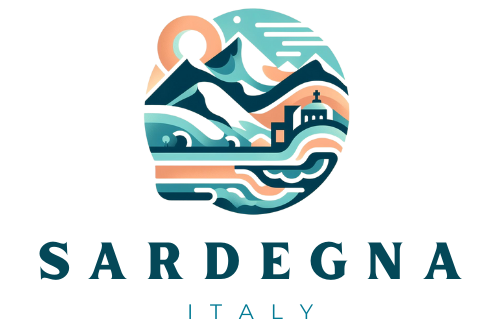Sardinian language linguistic research is a fascinating field that delves into the intricacies of one of the oldest spoken languages in Europe. With its roots tracing back to the ancient Nuragic civilization, Sardinian is not only a brilliant linguistic tapestry but also a testament to the cultural heritage of the island of Sardinia. Linguists and researchers have dedicated their efforts to understanding the unique features and impacts of this distinctive language.
One of the defining characteristics of the Sardinian language is its remarkable diversity. Despite its relatively small geographical area, Sardinia boasts a wide range of dialects and variations within the Sardinian language itself. This diversity has been shaped by a variety of historical, social, and cultural factors, making it an exciting subject for linguistic investigation. Scholars have found that studying the different dialects of Sardinian provides valuable insights into language evolution, contact linguistics, and even the cultural history of the island.
Moving forward, this article will explore some key takeaways from Sardinian language linguistic research. Specifically, we will delve into the historical factors influencing the language’s development and the impact of Sardinian on the island’s cultural identity. Additionally, we will discuss the challenges faced by linguists in preserving and documenting the rich linguistic heritage of Sardinia. By gaining a deeper understanding of the unique features and cultural significance of the Sardinian language, we can appreciate the importance of linguistic research in preserving and celebrating diverse linguistic traditions.
Key Takeaways
1. Sardinian language, spoken in the Italian region of Sardinia, is a unique linguistic phenomenon with a rich historical and cultural background.
2. Linguistic research reveals that the Sardinian language has been influenced by various external factors, such as neighboring languages, migration patterns, and historical events.
3. Despite these influences, Sardinian language boasts distinct phonetic and morphological features, which differentiate it from other Romance languages and make it a captivating subject for linguistic study.
4. The preservation of the Sardinian language faces challenges such as urbanization, language shift, and societal pressure to adopt the dominant language, highlighting the importance of safeguarding language diversity.
5. Linguistic research on Sardinian contributes not only to the academic understanding of language evolution and contact phenomena but also offers insights into the cultural and social dynamics within Sardinia and the larger context of minority languages.
What is the Significance of Sardinian Language Linguistic Research?
The Origins and History of the Sardinian Language
The Sardinian language is a Romance language spoken primarily on the island of Sardinia, Italy. It has ancient roots dating back to the pre-Roman period and has evolved significantly over time. Understanding the origins and historical development of the Sardinian language is crucial for linguistic research.
Characteristics and Phonetics of Sardinian
Sardinian exhibits several unique characteristics that differentiate it from other Romance languages. Researching the phonetics, pronunciation, and grammatical structures of Sardinian sheds light on its linguistic peculiarities. Exploring distinctive phonemes, vowel systems, and syllable structures can provide valuable insights.
Variations and Dialects of Sardinian
Like most languages, Sardinian has various dialects and regional variations. These differences in pronunciation, vocabulary, and grammar contribute to the rich linguistic diversity within the Sardinian language. Conducting research on the different dialects and their mutual intelligibility can help preserve and promote the linguistic heritage of Sardinia.
Sociolinguistic Aspects and Language Revitalization Efforts
In recent years, the Sardinian language has faced challenges due to language shift and decline in usage. Linguistic research also explores the sociolinguistic aspects of Sardinian, including language attitudes, language vitality, and language policies. Understanding these factors is essential for devising effective language revitalization strategies.
Comparative Studies with Other Romance Languages
Comparative linguistic analysis between Sardinian and other Romance languages allows researchers to uncover similarities and differences. By examining lexical items, grammatical structures, and syntactic patterns, researchers can gain a better understanding of the linguistic relationships between Sardinian and its linguistic relatives.
Documentation and Preservation of Sardinian Language Corpus
Linguistic research focuses on documenting and preserving the Sardinian language corpus. Creating comprehensive databases, dictionaries, and linguistic resources is crucial for the future study and promotion of Sardinian. Therefore, researchers work towards developing reliable linguistic tools and resources to safeguard the language’s linguistic heritage.
Factors Influence Sardinian Language Use
Research also explores the factors that influence Sardinian language use in various domains such as education, media, and daily communication. Investigating the challenges and opportunities for incorporating Sardinian into formal education systems or media platforms contributes to the overall understanding of language usage dynamics.
The Role of Sardinian Language in Cultural Identity
Lastly, linguistic research recognizes the integral role of the Sardinian language in defining cultural identity. Studying how language shapes cultural practices, traditions, and beliefs highlights the importance of linguistic research for preserving and promoting the unique Sardinian cultural heritage.
5 Key Tips for Conducting Sardinian Language Linguistic Research:
- Build a comprehensive corpus of Sardinian language data for analysis and preservation purposes.
- Collaborate with native Sardinian speakers and local communities to gain deeper insights into the language’s nuances.
- Utilize advanced linguistic technology and tools to analyze phonetics, syntax, and grammar of the Sardinian language.
- Engage in comparative studies with other Romance languages to better understand Sardinian’s position within the language family.
- Advocate for the recognition and integration of Sardinian language in formal education systems and media platforms to ensure its long-term vitality.
FAQs
1. What is Sardinian language linguistic research?
Sardinian language linguistic research refers to the study of the Sardinian language from a linguistic perspective. It involves analyzing its phonology, morphology, syntax, semantics, and the historical development of the language.
2. Why is Sardinian language linguistic research important?
Sardinian is a unique and fascinating language with a rich history and cultural significance. Linguistic research on Sardinian helps us gain insight into its structure, evolution, and relationship with other languages. It also provides valuable information for language preservation and revitalization efforts.
3. What are the main areas of focus in Sardinian language linguistic research?
The main areas of focus in Sardinian language linguistic research include dialectology, sociolinguistics, historical linguistics, phonetics, phonology, morphology, syntax, and semantics. These research areas contribute to a comprehensive understanding of the language.
4. How does Sardinian compare to other Romance languages?
Sardinian is considered one of the most conservative Romance languages, preserving many features found in Latin. It shares similarities with Italian and other Romance languages but also exhibits unique linguistic characteristics that differentiate it from its counterparts.
5. What are the benefits of studying Sardinian language linguistic research?
Studying Sardinian language linguistic research can enhance our understanding of the evolution and diversity of human language. It also provides insights into the culture, history, and identity of the Sardinian people. Additionally, it contributes to the broader field of linguistics and language preservation efforts.
6. Are there any challenges in conducting Sardinian language linguistic research?
Conducting Sardinian language linguistic research can present challenges due to limited resources, documentation, and accessibility of native speakers. However, advancements in technology and collaborations with scholars and communities have helped overcome some of these challenges.
7. How does Sardinian language linguistic research contribute to language preservation?
Sardinian language linguistic research plays a crucial role in documenting and understanding the language’s structure, grammar, and vocabulary. This knowledge is essential for language preservation initiatives, including language revitalization programs and educational materials for future generations.
8. Are there any ongoing projects or institutions dedicated to Sardinian language linguistic research?
Yes, there are several ongoing projects and institutions dedicated to Sardinian language linguistic research. These include universities, research centers, and organizations focused on preserving and promoting the Sardinian language and culture.
9. Can Sardinian language linguistic research help with language revitalization efforts?
Absolutely! Sardinian language linguistic research provides the foundation for language revitalization efforts. It helps identify language patterns, create pedagogical resources, and develop strategies to ensure the language’s survival and promotion in various contexts.
10. How can individuals contribute to Sardinian language linguistic research?
Individuals can contribute to Sardinian language linguistic research by participating in language documentation projects, sharing their knowledge and experiences as native speakers, supporting language preservation initiatives, and collaborating with researchers and institutions involved in the field.
Final Thoughts
As we delve into the world of Sardinian language linguistic research, we uncover the treasures of this ancient Romance language. The exploration of its phonetic nuances, grammatical structures, and captivating vocabulary brings us closer to understanding the rich cultural heritage of the Sardinian people.
Intriguingly, through Sardinian language linguistic research, we not only witness the timeless evolution of a language but also observe an intricate tapestry of history, identity, and resilience woven by its speakers. As the torchbearers of language preservation, let us embrace our role in cherishing and cultivating the linguistic legacy of Sardinia for generations to come.






